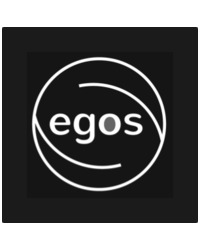
Convenors:
Achim Oberg (WU – Vienna University of Economics and Business, Austria)
Valeska P. Korff (University of Potsdam, Germany)
Walter W. Powell (Stanford University, USA)
Our sub-theme applies the general theme of the 35th EGOS Colloquium – ‘Enlightening the Future: The Challenge for Organizations’ – to the digital identities of organizations, i.e. their websites, social media pages and apps. Websites, for example, are organizations’ most important public self-representations and constitute world-wide accessible façades. In recent years, for many organizations, websites have become the main contact point to important stakeholders like customers, shareholders, and, in some cases, even employees. They not only combine information in different modes like text, visuals, sound, and videos, but activities as diverse as scheduling appointments, making purchases, applying for jobs or submitting work (for instance, conference papers) are done through organizational websites (Powell et al., 2016). Through relational hyperlinks integrated in their websites, organizations endorse other organizations, directing and sharing the attention and flow of visitors with organizations of similar or complementary forms (Powell et al., 2017).
These characteristics make websites and social media pages of organizations an interesting area for different streams in organizational research: The world-wide availability allows comparative studies of the adaption of the same concept or form in different contexts; research on combinations of communication modes in a hypertext can inform current debates on multi-modality; the relationality of digital identities opens up possibilities to study large organizational and discourse fields as networks. While in some of these areas promising projects are in the making, so far, such research lacks a shared theoretical understanding of digital identities. Our goal is to examine how organizations’ digital identities can be theorized from different perspectives and how new methodological approaches to capture and analyze digital identities can help us advance our understanding of an important aspect of the digitalization of organizations.
Academic discourse and insights on digitalization are lagging behind practical relevance of digital identities. In this sub-theme, we seek contributions from authors who explore and analyze the challenges and/or opportunities associated with organizations’ digital identities. Paper contributions may include, but are not limited to, the following aspects and research questions:
Digital identities as interactive hypertexts
- How do digital identities differ from and relate to other types of identities?
- How are digital identities created, and how malleable are they?
- What are components, and what are boundaries of digital identities?
- How do we handle non-linear hypertext self-representations (like the World Wide Web)? Are multi modal approaches helpful to analyze hypertext identities?
- To what extent do structural features of digital identities such as the information architecture of a website reflect or reveal organizational structures?
- How do almost purely digital organizations like peer-to-peer platforms (e.g. AirBnB, YouTube, etc.) manage their identities?
Categories and classifications of digital identities
- Which cultural, social, and structural aspects of organizations’ identities are visible in digital identities? How does this vary across organizational forms or sectors?
- How do different strategies to curate a digital identity affect an organization’s legitimacy?
- Do automatic approaches such as topic modeling or machine learning facilitate an understanding of general themes and organizations’ positions reflected in digital identities?
- How do audiences classify and categorize digital identities?
Field structures and dynamics
- What draws organizations together on the World Wide Web?
- How can we reconstruct organizational fields on the WWW or on social media platforms?
- How do non-organizational forms such as blogs, early movement initiatives, etc. and new organizational forms influence field structures?
- What can we learn about issue fields by studying digital identities?
- How can we study field dynamics, their emergence and disruption via digital identities?
Interactions and reactions
- How do digital identities shape interactions with audiences, stakeholders, and/or members?
- How are external processes such as management trends, social and political developments, and prominent discourses reflected in digital identities?
- How does social contagion and influence occur in the context of digital identities?
The aim of the sub-theme is to provide a platform for sharing ideas and insights on various issues that are important for a better understanding of digital identities. It intends to bring together research and researchers from different institutional settings and theoretical backgrounds in order to stimulate a fruitful dialogue on the state of the art of organizational research on digital identities of organizations.
The sub-theme is open to any theory and method that can be applied fruitfully to better understand ‘Digital Identities of Organizations’: Paper contributions may be grounded in multiple theoretical perspectives, employed by researchers in areas such as institutional analysis, media and communication studies, cultural sociology or information systems and technology. Studies that incorporate insights from a diverse range of disciplines such as sociology, media design, cultural anthropology or political science are welcome. Paper contributions may be conceptual or empirical in nature and apply different types of research designs, including quantitative studies as well as qualitative approaches.
Please submit here.
12/19/18